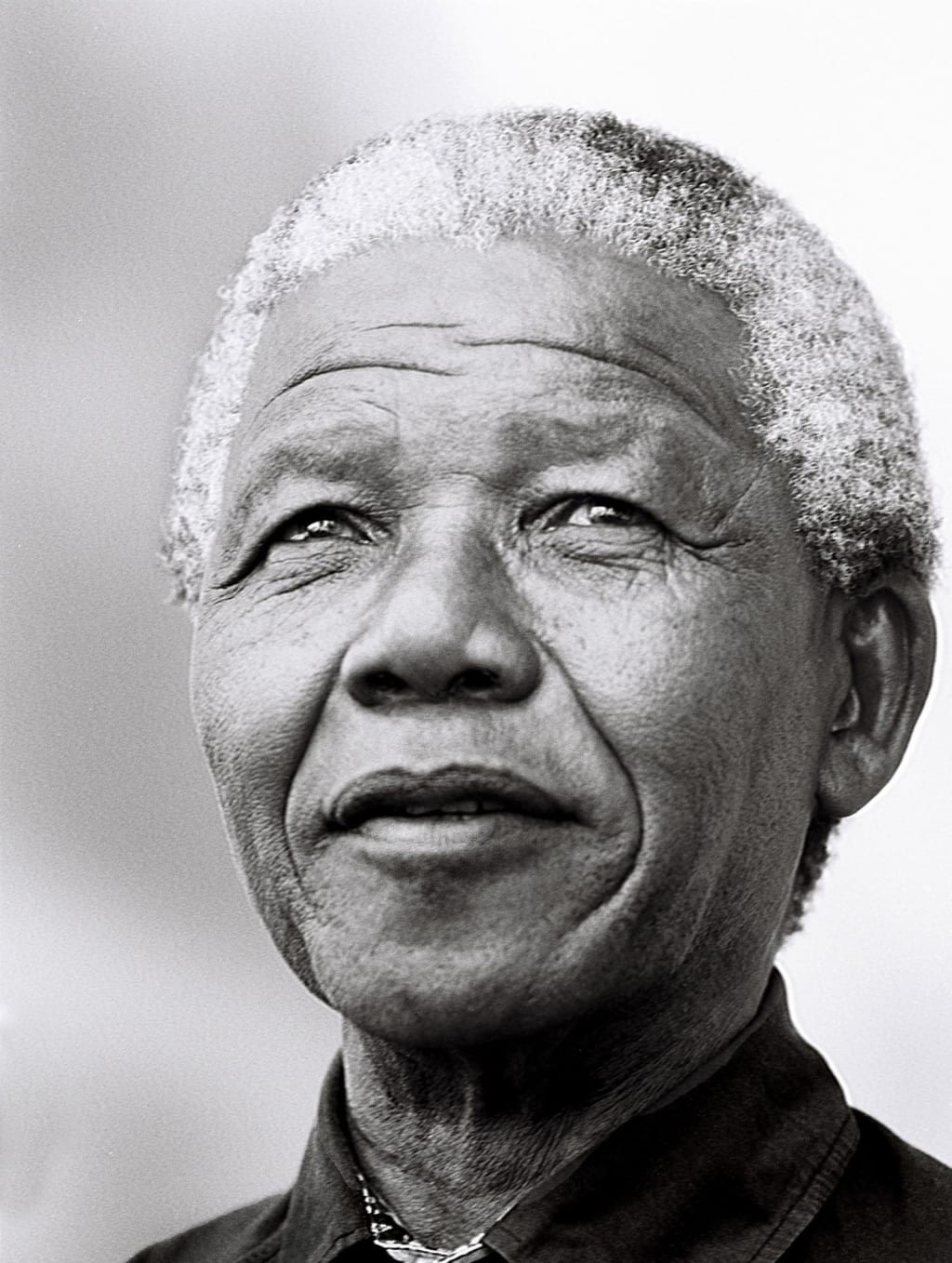
- A well-known political figure and anti-apartheid campaigner from South Africa was Nelson Mandela. On July 18, 1918, he was born in the Mvezo village. During the time of apartheid, a system of institutionalised racial segregation and oppression imposed by the South African government, Mandela actively engaged in the fight against racial injustice and discrimination.
- Mandela joined the African National Congress (ANC), a group that worked to defend the rights of black South Africans, in the 1940s. He moved up the ranks, becoming a well-known figure in the ANC's fight against apartheid. Mandela initially supported nonviolent protests and dialogue, but after witnessing the government's brutal suppression of anti-apartheid activities, he came to believe that armed resistance was necessary.Mandela was detained and given a life sentence in jail in 1964 for his participation in anti-apartheid campaigns. He was incarcerated for the following 27 years, the majority of them on Robben Island. Mandela achieved international acclaim and became a symbol of the fight against apartheid while he was incarcerated. The worldwide movement for his release and the abolition of apartheid was only made stronger by his imprisonment.
- President F.W. de Klerk, who was in office at the time, ordered Mandela's release from jail in 1990 as a result of growing pressure and shifting political conditions. Mandela seized the chance for dialogue and peacemaking, aiming to end apartheid and build a democratic South Africa.
- Nelson Mandela, with his charismatic leadership and unshakable dedication to equality, was the leading candidate in South Africa's first non-racial and democratic elections conducted in 1994.was chosen as the first black president of the nation. Despite the lasting effects of apartheid, Mandela's leadership placed a strong emphasis on forging a unified country and fostering reconciliation.
- Mandela, who held the office of president between 1994 to 1999, was instrumental in the development of a new constitution that upheld human rights and encouraged equality for all South Africans. Mandela persisted in promoting social justice, humanitarian causes, and peace both inside South Africa and beyond the world after he left office.
- Despite the fact that the late Nelson Mandela passed away on December 5, 2013, his legacy as an example of equality and freedom continues to motivate people all over the world. He is one of the most beloved and respected personalities in contemporary history due to his steadfast dedication to justice and his capacity for bridging differences.
- During his time in jail, Mandela kept on battling for opportunity and equity. He supported for the freedoms of detainees and made progress toward joining different racial and political gatherings behind the shared objective of destroying politically-sanctioned racial segregation. His immovable obligation to fairness and compromise made him a worldwide perceived figure.
- In 1990, because of developing global strain and inside changes in South Africa, Mandela was set free from jail. His delivery denoted a defining moment in the nation's set of experiences. Mandela arose as a vital figure in exchanges with the politically-sanctioned racial segregation government, expecting to stop racial isolation and lay out a majority rule and comprehensive South Africa.
- In 1994, South Africa held its most memorable vote based decisions, and Nelson Mandela, tenderly known as Madiba, turned into the nation's most memorable dark president. His administration zeroed in on compromise and recuperating the injuries of politically-sanctioned racial segregation. Mandela supported Reality and Compromise Commission, a body entrusted with researching denials of basic liberties and advancing pardoning.
- Subsequent to venturing down as president in 1999, Mandela proceeded with his work as a legislator, donor, and backer for different causes, including training, HIV/Helps counteraction, and harmony building drives. His endeavors acquired him various honors and awards, including the Nobel Harmony Prize in 1993.
- Nelson Mandela died on December 5, 2013, yet his heritage lives on. He is commended overall for his unflinching obligation to equity, balance, and the standards of a majority rules government. Mandela's life fills in as a motivation to individuals all over the planet, helping us to remember the force of absolution, compromise, and the battle for common liberties.
About the Creator
Enjoyed the story? Support the Creator.
Subscribe for free to receive all their stories in your feed. You could also pledge your support or give them a one-off tip, letting them know you appreciate their work.





Comments
There are no comments for this story
Be the first to respond and start the conversation.